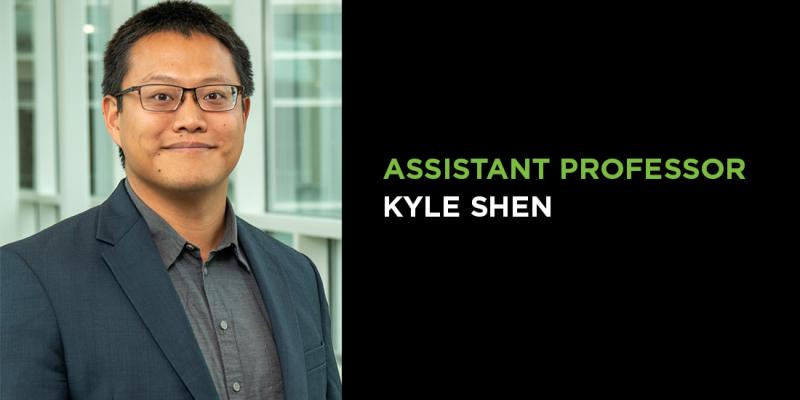
Kyle Shen joined the Cleveland State University College of Law faculty this fall as an Assistant Professor. Professor Shen teaches Constitutional Law ,with his research and teaching focusing on the evolution of constitutional law through historical and comparative lenses.
“I am indescribably excited to have this opportunity to return to a law school setting and work with law students,” said Professor Shen. “The students at CSU are truly wonderful, so incredibly passionate and hardworking.”
Prior to joining CSU|LAW, Professor Shen taught US constitutional law and comparative politics at Occidental College as well as at the University of Texas at Austin as a graduate student Instructor. He earned his Ph.D. from UT-Austin, Department of Government in political science, with a focus on empirical legal studies. Professor Shen earned his JD at the University of Texas School of Law and received an AB in Political Science from the University of Chicago.
A Cincinnati native, Professor Shen originally attended law school hoping to work in immigration, criminal defense, or human rights law. However, while in law school, he discovered ways that social science can augment work in those areas and help to better understand how law contributes to social change in measurable ways.
“The more I thought about the effects of litigation and legal advocacy, the more I found myself drawn to empirical analyses of law,” explained Professor Shen.
Professor Shen’s primary research project focuses on the role of international organizations in the drafting process of national constitutions, especially in post-authoritarian and transitional contexts. This project examines how international organizations’ involvement in domestic constitutional reform leads to unintended consequences in domestic politics, triggering backlashes against international norms and frustrating the realization of democratic principles through constitutional texts.
Through his work in comparative law, Professor Shen has familiarly with legal education in other countries. One difference that stands out to him is that often students are tracked into legal careers from their first day of undergraduate, which often means less mobility in society. He feels that the BA to JD pathway in the US critically affords people from all walks of life the opportunity to attend law school. He sees that represented to the fullest at CSU|LAW.
“I really like how committed CSU|LAW is to opening pathways to opportunity and seeing law as a career dedicated to service, leadership, and justice, said Professor Shen. “These commitments exemplify what I see as the best features of the US legal education system.”
It is Professor Shen belief that Constitutional Law will always exist at the intersection of law and politics and that political opinion will frequently determine the decisions of judges.
“Constitutional Law challenges us to consider how doctrine, judicial philosophies, and, yes, politics, all come together to set the fundamental rules of our political institutions,” said Professor Shen. “There are essential, complicated questions to answer to understand why our political system functions in the way it does, and how power is distributed throughout our society and our governing institutions.”
Discussing how that intersection translates to a constitutional law course, Professor Shen explained, “My best professors in law school articulated both sides of an argument and then gave us the freedom to try out different arguments for one side or the other, or even forced us to defend the position we disagreed with, It’s an essential skill for a lawyer and a skill that one can start building early in law school.”
Professor Shen’s work has been featured in the Handbook of Law and Political Systems and in the Annual Review of Law and Social Science. He has worked on issues pertaining to appellate law and post-conviction Writs of Habeas Corpus at an internship at the Texas Court of Criminal Appeals in Austin, Texas and also worked on issues of international criminal law at an internship in the prosecutor’s office at the United Nations Assistance to the Khmer Rouge Trials in Phnom Penh, Cambodia.
